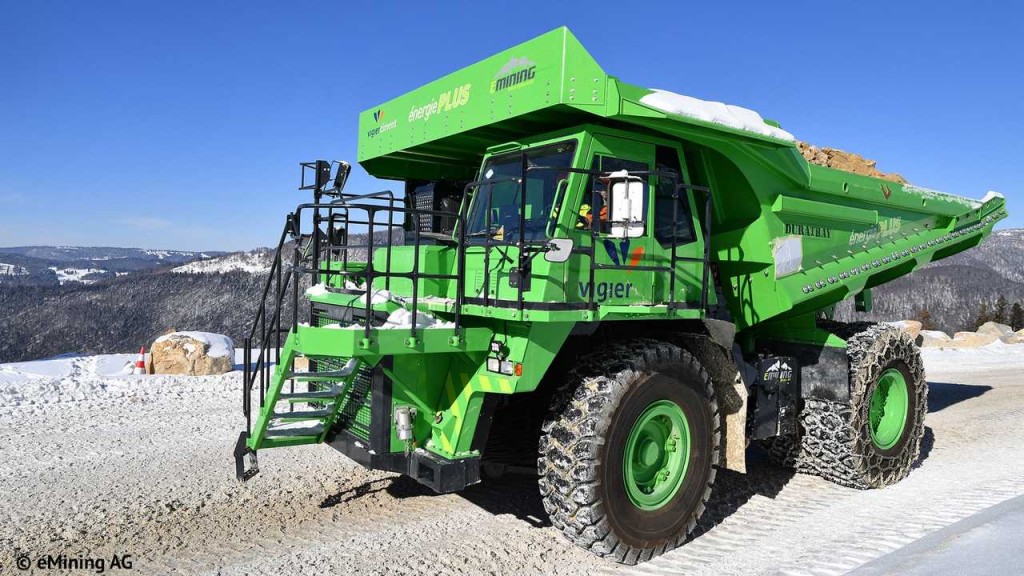Here’s an EV that Never Needs Recharging–No Lie

But what about a truck whose route is quite steep, and always weighs more going downhill than it does on the climb back up? Sound impossible? Improbable maybe, but what if the truck is bringing rocks downhill? Yes, such a scenario is extremely rare, but apparently it does exist.

Craig,
“regenerative braking for electric vehicles is mostly bs. When we calculate the amount of kinetic energy that we covert to heat in our cars’ and trucks’ braking systems and compare that to the weight and expense of the new system, we almost always come up negative”
You seem very confused !
The truck in the picture, is not powered by an electric motor so what would be the point of regenerative braking?
The Caterpillar 175-20 mining truck (similar to the one pictured) have an engine generating 5000 hp.
The 50 disc brakes required to stop such a behemoth have a total surface area of 330517 cm2.
However, the use of regenerative braking fitted to an EV car can prove very useful and relatively inexpensive to install.
Since most EV drivers use their vehicles primarily in cities where constant braking occurs, regenerative braking can add a small but very satisfying amount of charge to the vehicles battery range.
Tesla cites regenerative braking in urban conditions can add as much as 30% to the vehicles range. My own estimates based on driving in London traffic to be as high as 18%.
The difference is especially important when carry a full compliment of passengers or towing. The regenerative capacity incre4ases at a time when range is diminished which proves especially valuable.
Regenerative braking is also less costly to maintain than normal braking systems.
In conclusion, your assertion is completely wrong! Regenerative braking when applied correctly can be very valuable and an important feature of the performance of an EV.
(Of course you’d realize the benefits is you actually owned and EV!).